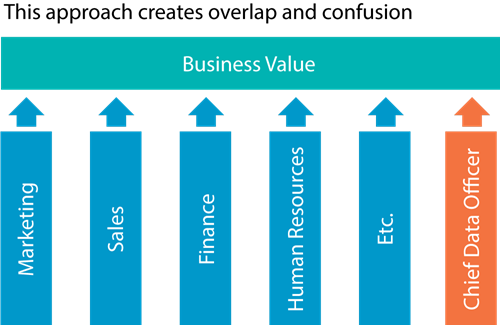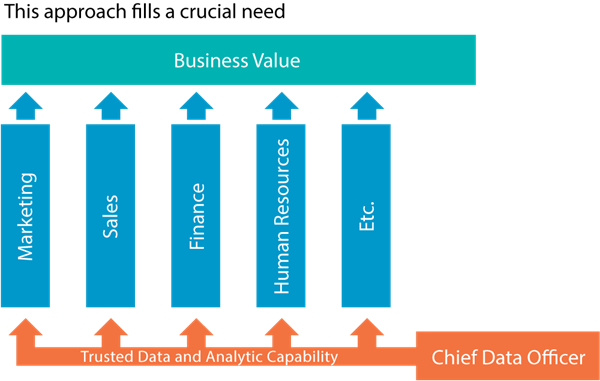The role of chief data officer is only now emerging in most organizations, so it’s understandable that a newly minted CDO would be eager to make an impact as quickly as possible. As a first order of business, it would seem reasonable to propose business value associated with effective deployment and use of data. But here’s the problem: it’s probably already someone else’s job to propose that same value.
In most organizations, business liaisons – by various titles – are the key strategic link between IT and the business. Any executive should be able to name
one person that they primarily work with to propose new projects. In most cases, the liaison and functional executive work together to develop a medium-to-long term roadmap, including specific project proposals for the coming year.
So, what happens when a CDO comes along and begins proposing data and analytics projects? To whom do they make these proposals? And what is a “
data and analytics” project anyway, as compared to any other project likely to already include data and analytics as a significant component? Let’s say, for example that a CDO for a large insurance company believes that artificial intelligence could be used to evaluate claims for potential fraud. That’s great, but isn’t someone else already assigned to find these value propositions? Isn’t a business liaison already working with the claims department to reduce fraud? Well meaning proposals like these could easily create conflict and confusion for everyone involved.

Rather than attempting to carve out their own unique value propositions, CDOs should
advise and support others in the organization. In this way, a CDO can offer knowledge about potential use cases – such as the use of innovative data sources or the application of modern analytical techniques – while simultaneously ensuring that data is deployed in the right condition to support
many use cases. No one else is in a position to do this, and circumventing the existing structure to propose direct value could undermine and distract from the urgent need to begin deploying data rationally.
The most effective CDOs position themselves to complement, not compete with, existing roles. Because data and analytics are so pervasive within nearly all major programs, taking a step back from direct business value paradoxically allows the CDO to provide much broader, more profound and long-lasting value to the organization. The roadmap developed by the CDO should clearly show how he or she will deploy data and analytical capability, step by step, in direct
support of business initiatives and associated application projects across the organization – sponsored by others.

When taking on a new role as CDO, think about where the real need is. Think about what is
not being done today. Think about what your peers would be thrilled for you to offer. In most organizations, the answer is to provide integrated and trustworthy data and associated analytical capability, just-in-time and just-enough, to support the value proposed by others, often with your help and guidance.
Some people grab the headlines, and others set the stage. There is honor in both. Right now, in the world of data and analytics, the talents of the CDO are needed behind the scenes, with the final bow taken with locked arms, not sharp elbows.
Kevin M Lewis is a Director of Data and Architecture Strategy with Teradata Corporation. Kevin shares best practices across all major industries, helping clients transform and modernize data and analytics programs including organization, process, and architecture. The practice advocates strategies that deliver value quickly while simultaneously contributing to a coherent ecosystem with every project.
View all posts by Kevin Lewis